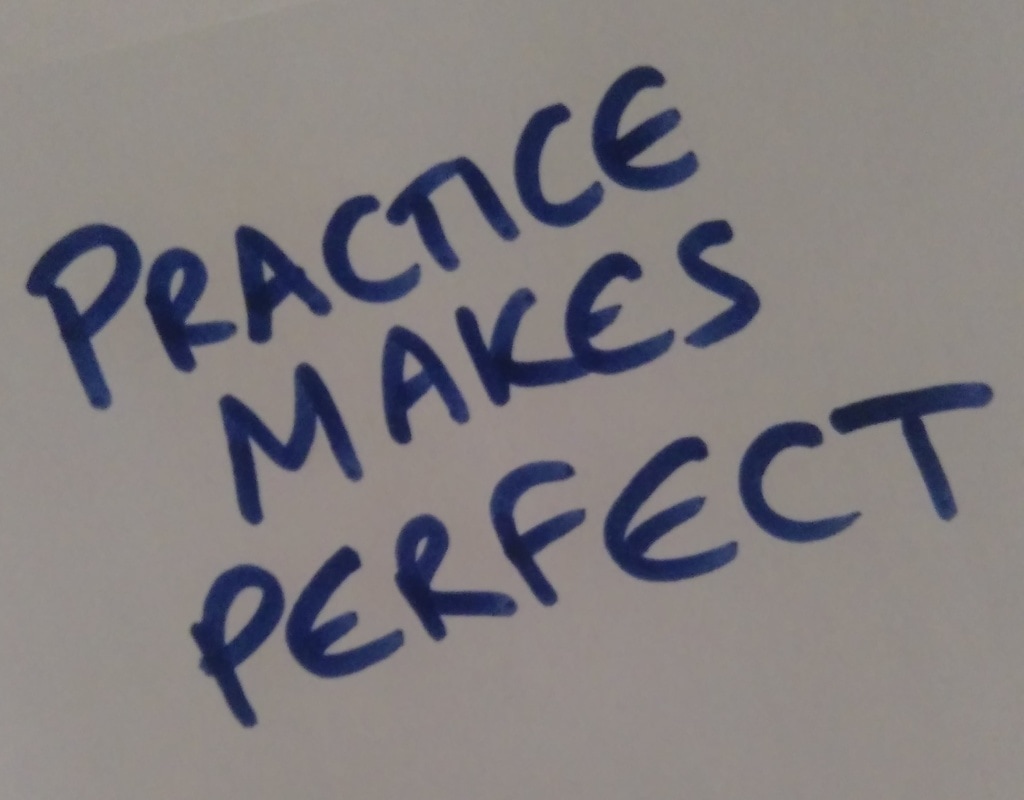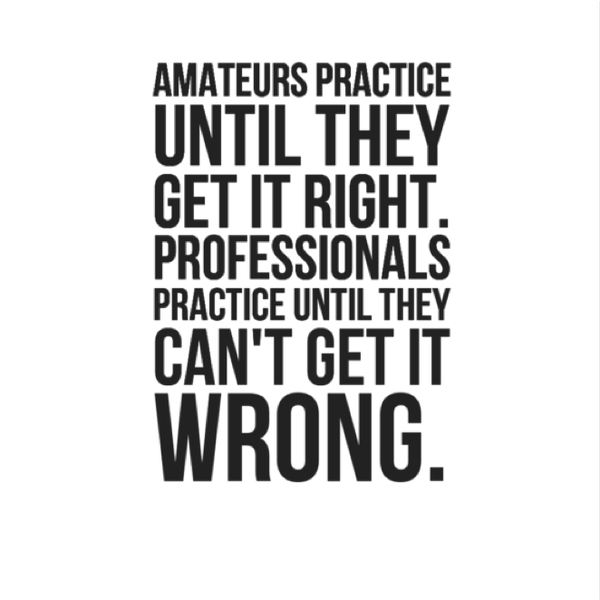|
It's a well-known fact that music teachers have the ability to tell exactly how much practice you've done between your last lesson and the current one. You can't fool us. You don't need to make the guilty admissions that you "haven't done much practice" because we already know. Even on those days when you know you've done loads of practice and it feels like it's not showing when you play in front of your teacher, we can tell.
Well, OK, we can't tell precisely how many minutes of practice you've done, but generally, teachers can tell if there's been some work since last week. We can tell because we have done and still do go through the process of practising ourselves. We're familiar with the satisfaction that comes when that structured, gradual work pays off, and the frustration that you feel when you know you've put the work in but the desired result hasn't materialised yet. At this time of year lots of people have been making resolutions to practise more, take up a new instrument or return to a neglected one. And we seem to be bombarded with quotes intended to inspire and motivate us. The two above have popped up in my view just this week. Some words can be helpful in spurring us on, but I'm not sure about these ones. Both of these give the impression that what we're aiming for in music is 'perfection'. That you can never be a professional unless you can do things without any mistakes. Yes, it's a good thing to aim to keep improving your playing, and if you want to perform a piece, you want it to feel as secure as possible, but these quotes suggest that you're not 'good enough' if you're not perfect, and that can be quite demotivating. I think this sort of pressure can lead to unhealthy stress - feeling like you can never 'get anywhere' with music if you're still making mistakes. Of course professionals still get it wrong! And how would you even begin to agree on a definition of perfection? A more useful piece of advice I read recently appeared in this blog post by The Self-Inspired Flutist: "realise that practising is the point". In other words, as a musician, you're going to spend more time practising than any other activity, so if you can learn to love it, that will go a long way to enjoying making music. That doesn't mean that it will always be fun and sound lovely - the point of practising is to deal with the bits you find difficult, to make the mistakes and find out how to fix them. It can be frustrating and downright annoying at times, no matter how many years you've been doing it for. But if you can find satisfaction in that process, I think that can make a big difference. I'm playing in a concert at the beginning of February, and I reckon on the day I'll be actually physically playing the flute for about fifteen minutes. I haven't kept track of how long I've practised the pieces for (especially as I've played a couple of them before, so the initial practice was a while ago and I'm now revisiting them), but I can tell you that it has definitely been hours. Then there's the general ongoing practice of improving tone, technique, breath control etc which will contribute to playing these pieces. Seeing the outcome of all these things in a performance is of course fulfilling, but getting absorbed in the process is also a wonderful thing. Finding out what your mind and body can do can be quite amazing - from the beginner who starts to train those tiny muscles around their lips to make a sound on the flute, to the advanced player who discovers a small tweak to their hand position which improves their technique. Things you do other than actually playing your instrument can help your music-making too. Lots of musicians turn to meditation to help with nerves and concentration, and to exercise for fitness and stress-relief. I've recently re-started going to the gym, and the fact that I know it helps my playing is always a big motivation. Some achy muscles led me to reading about recovering from workouts, and everything I saw emphasised the importance of rest. One article I read said that fitness doesn't happen in the gym, it happens in the times between, when your muscles are recovering and rebuilding - and practising an instrument needs those times in-between too. You are using both muscles and mental energy, and those need to be rested. So this is why I won't tell you to practise every day, but most days, and to do enough but don't overdo it. Take rests, have a cup of tea, have a day off, go and listen to your pieces rather than playing them, go and listen to something completely different, lie on the grass and stare at the sky for a bit (though maybe not at this time of year). Of course you won't always do all of this, and sometimes you'll give yourself a hard time for not being perfect, for playing the wrong notes, or for not practising enough or for doing too much (and sometimes I need to be reminded to follow my own advice). And that's OK. It's difficult to sum that up in a snappy quote though.
0 Comments
Your comment will be posted after it is approved.
Leave a Reply. |
Keep in touch
I have an email newsletter where I share my latest blog posts, news from the flute and wider musical world, my current projects, and things I've found that I think are interesting and useful and would love to share with you. Expect lots about music and education, plus the occasional dip into research, language, freelance life, gardening and other nice things. Sign up below! Archives
July 2019
Categories
All
|


 RSS Feed
RSS Feed
